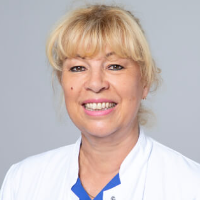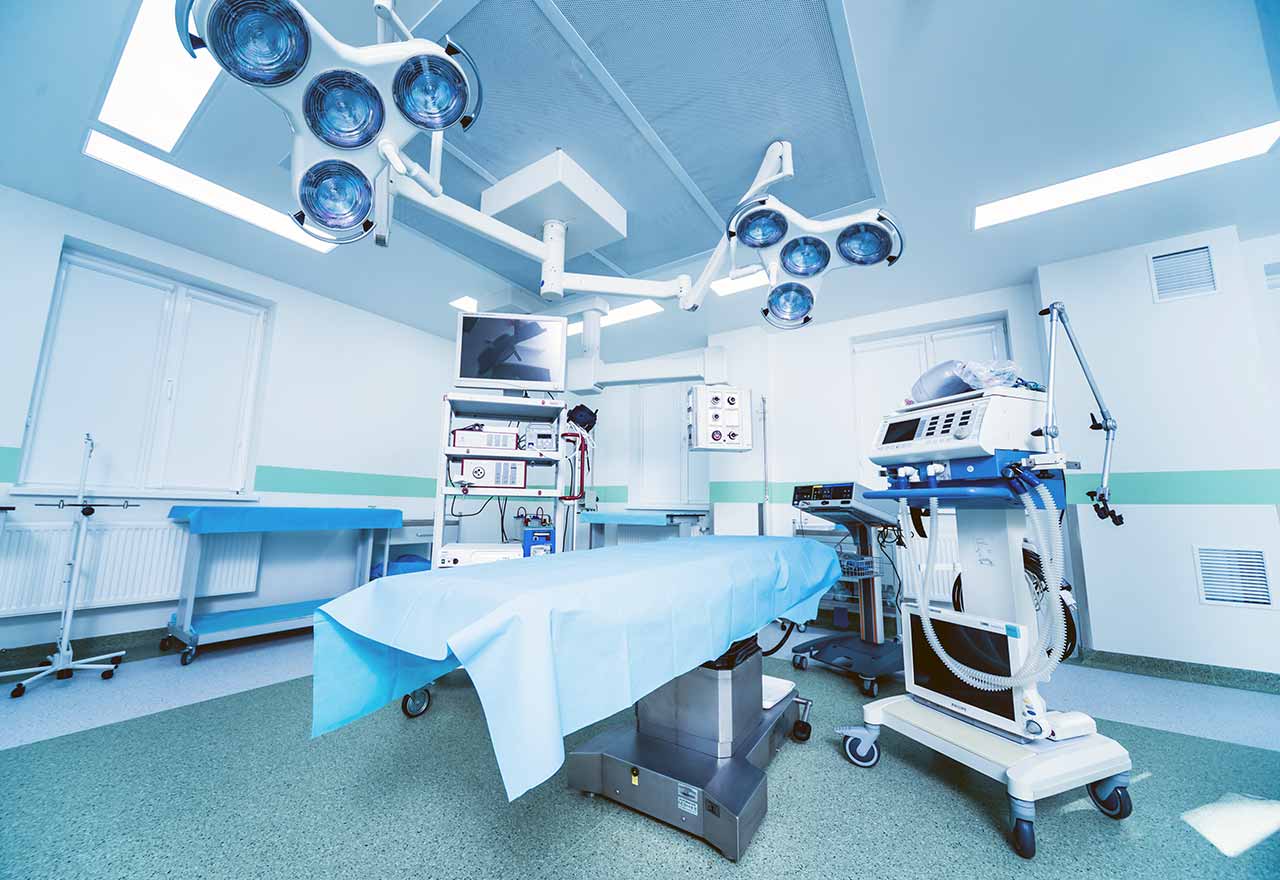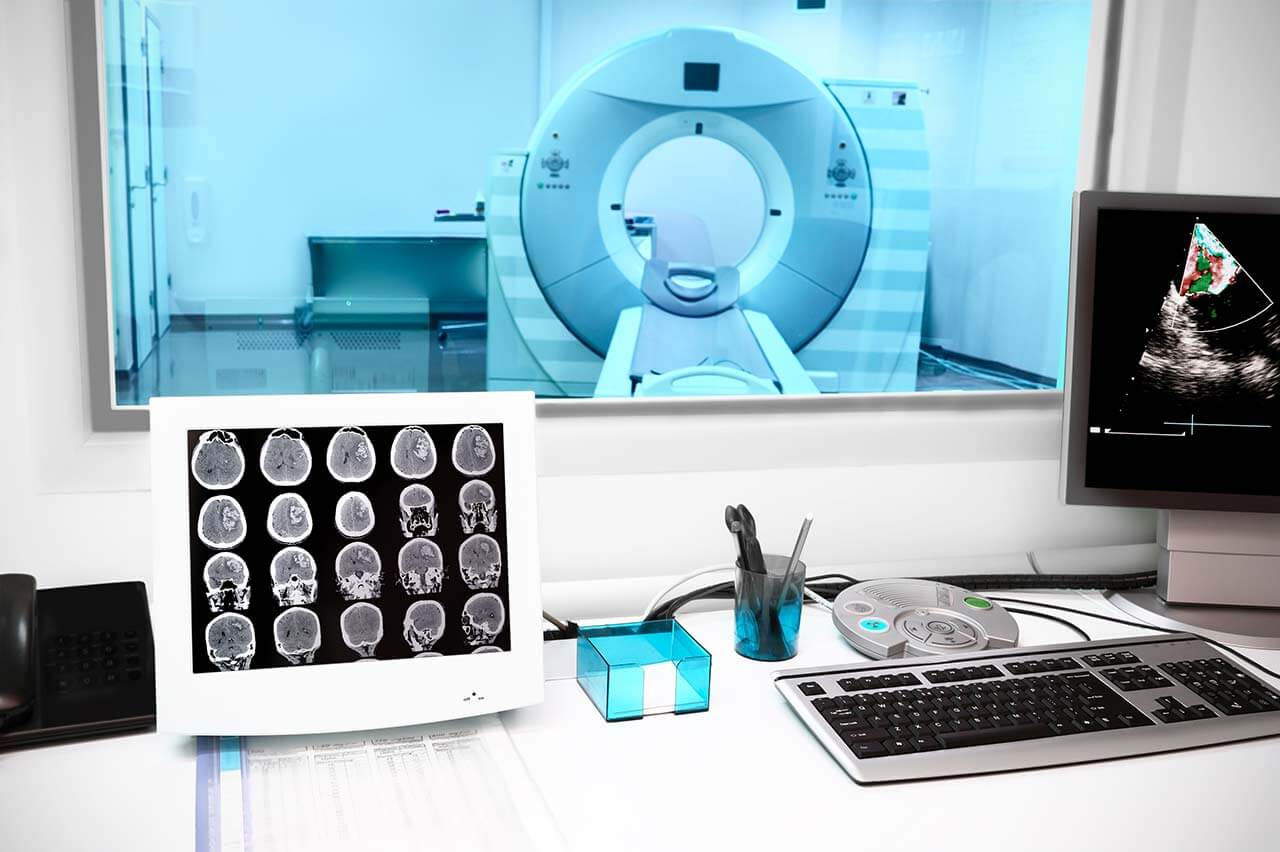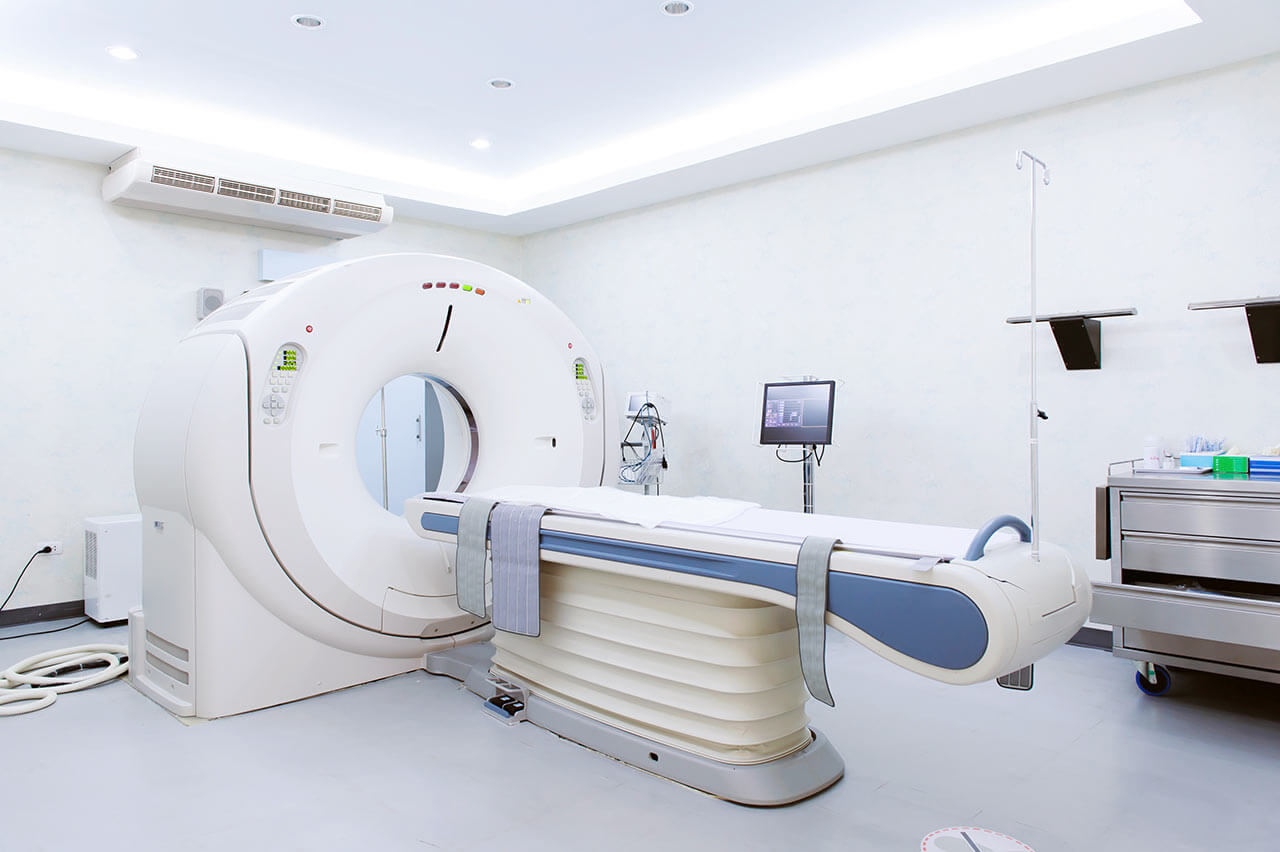
The program includes:
- Initial presentation in the clinic
- clinical history taking
- review of medical records
- physical examination
- urological examination
- laboratory tests:
- complete blood count
- general urine analysis
- biochemical analysis of blood
- inflammation indicators (CRP, ESR)
- indicators blood coagulation
- tumor marker, PSA
- ultrasound of the urogenital system
- CT/MRI of the abdomen and pelvis
- preoperative care
- surgical drainage of the abscess
- symptomatic treatment
- control examinations
- the cost of essential medicines and materials
- nursing services
- full hospital accommodation
- explanation of future recommendations
Required documents
- Medical records
- US scan, MRI/CT scan (if available)
Service
You may also book:
 BookingHealth Price from:
BookingHealth Price from:
About the department
According to the Focus magazine, the Department of Adult and Pediatric Urology, Andrology at the University Hospital Hamburg-Eppendorf is one of the best medical facilities in Germany for prostate cancer treatment!
The department provides effective treatment for the entire spectrum of diseases of the urinary tract and male reproductive system in accordance with the highest medical standards. Patients of all ages, from newborns to the elderly, can receive medical care. The department's primary specialty is reconstructive urology: surgeons perform reconstructive urethral plastic surgery, artificial sphincter and synthetic tape (sling) implantation surgery to treat urinary incontinence, reconstructive penile plastic surgery to correct congenital and acquired defects, and penile prosthetics for erectile dysfunction. An equally important focus of the urology team is the surgical treatment of oncologic diseases such as bladder, kidney, adrenal, prostate, testicular, and penile cancer. Almost all surgical procedures to treat cancer are performed using minimally traumatic microsurgical and robot-assisted techniques – the department's urologists have the innovative da Vinci system at their disposal. Tumor drug therapy is provided in cooperation with specialists at the Cancer Center Hamburg. The department is a certified Urologic Oncology Center of the German Cancer Society (DKG). It is also one of the leading centers for pediatric urology in Germany and has the status of a certified training center for physicians of the European Society for Pediatric Urology (ESUP). The Head Physician of the department is Prof. Dr. med. Margit Fisch.
Reconstructive urology occupies a central place in the clinical practice of the department. The therapeutic offer in this area includes operations for strictures of the urethra, ureters, and ureteropelvic junction, surgery to create alternative urinary outflow pathways, interventions to implant an artificial sphincter, sling procedures, reconstructive plastic surgery, and penile prosthetics. The department performs more than 220 operations for urethral stricture each year. It should be noted that the medical facility has the status of a Reference Center for Urethral Reconstructive Surgery that uses progressive methods for the treatment of urethral conditions. Urethral stricture is a pathological narrowing of the anterior segment of the urethra. The disease is most common in men. The main symptoms are difficult and painful urination, a feeling of incomplete emptying of the bladder, and frequent urinary tract infections. The department's team of urologists successfully performs urethral reconstructive surgery using endoscopic and classical open techniques. Whenever possible, internal optical urethrotomy is performed. This is the least invasive procedure in which doctors use endoscopic equipment in combination with a laser or other energy source. The hospital stay after optical internal urethrotomy is only 2 days. In complex clinical cases, open urethroplasty is performed using autografts of the oral mucosa or a skin graft from the lateral thigh to replace the removed tissue of the urethra. Another option for open surgery to treat urethral stricture is urethroplasty with an end-to-end anastomosis, which does not require the use of autografts. These surgeries require the patient to stay in the hospital for at least 5 days. The optimal type of reconstructive urethral plastic surgery for the patient is determined after a thorough study of the medical history and diagnostic results.
The department's team of urologists also has excellent qualifications in the treatment of oncological diseases of the urinary system and male genital organs, in particular, bladder, kidney, prostate, testicular, and penile cancers. Prostate cancer is the most common oncopathology in men, in most cases developing after the age of over 60. In the early stages, there are usually no symptoms, so the department's specialists recommend regular preventive examinations, because there is a high chance of recovery with early detection of prostate cancer. The first stage of the diagnostic process includes the PSA (prostate-specific antigen) test, digital rectal examination, and transrectal ultrasound. If the results are unsatisfactory, a prostate biopsy, MRI, CT, PET/CT with PSMA, and skeletal scintigraphy may be performed. Treatment tactics are determined on an individual basis by an interdisciplinary tumor board. The first-line treatment is usually prostatectomy. For localized prostate cancer, it is also possible to destroy the tumor with cryotherapy or high-intensity focused ultrasound (HIFU). However, surgery is often not enough to completely defeat prostate cancer: in cooperation with oncologists, patients are prescribed chemotherapy, hormone therapy, and radiation therapy (external and/or internal). It is noteworthy that the doctors of the department work closely with the Martini Urology Clinic in Hamburg, where more than 2,600 prostate cancer operations are performed every year – this is the largest and leading center for prostate cancer treatment in the international medical arena.
In the field of pediatric urology, the treatment of congenital and acquired diseases of the genitourinary tract in children is of special interest to the specialists of the medical facility. The department provides qualified medical care to young patients with renal pelvis stenosis, vesicoureteral reflux, megaureter, urethral malformations, hypospadias, cryptorchidism, urinary tract infections, enuresis, and other conditions. Doctors of the department have at their disposal all modern conservative and surgical methods for the effective treatment of urological diseases in children.
The department also provides a wide range of andrological services. The healthcare facility offers modern methods of treatment of erectile dysfunction, ejaculation disorders, orgasm disorders, male hormonal disorders, Peyronie's disease, congenital penile curvature, and male infertility. Almost all of the above conditions respond well to conservative therapy. However, cooperation with a psychologist is often necessary, for example, in the case of erectile dysfunction. The department has extensive experience in performing MESA (microsurgical epididymal sperm aspiration) and TESE (testicular sperm extraction) procedures to treat female infertility.
The main areas of the clinical practice of the department are as follows:
- Urology
- Diagnostics and treatment of general urological diseases
- Diagnostics and treatment of urethral, ureteral, and ureteropelvic junction strictures
- Diagnostics and treatment of urinary incontinence
- Diagnostics and treatment of urolithiasis
- Diagnostics and treatment of benign prostatic hyperplasia
- Diagnostics and treatment of urological diseases in children
- Diagnostics and treatment of renal pelvis stenosis
- Diagnostics and treatment of vesicoureteral reflux
- Diagnostics and treatment of megaureter
- Diagnostics and treatment of urethral malformations
- Diagnostics and treatment of hypospadias
- Diagnostics and treatment of cryptorchidism
- Diagnostics and treatment of urinary tract infections
- Diagnostics and treatment of enuresis
- Diagnostics and treatment of urological cancers
- Diagnostics and treatment of bladder cancer
- Diagnostics and treatment of kidney cancer
- Diagnostics and treatment of prostate cancer
- Diagnostics and treatment of testicular cancer
- Diagnostics and treatment of penile cancer
- Diagnostics and treatment of general urological diseases
- Andrology
- Diagnostics and treatment of erectile dysfunction
- Diagnostics and treatment of ejaculation problems
- Diagnostics and treatment of orgasm disorders
- Diagnostics and treatment of hormonal imbalances in men
- Diagnostics and treatment of Peyronie's disease
- Diagnostics and treatment of congenital penile curvature
- Diagnostics and treatment of male infertility
- Other medical services
The department's therapeutic services include the following:
- Conservative treatment
- Drug therapy for general urological diseases
- Conservative therapy for malignant urological diseases
- Chemotherapy
- Hormone therapy
- Radiation therapy (external and internal)
- Surgical treatment
- Minimally invasive surgery
- Endoscopic surgery
- da Vinci robot-assisted surgery
- Removal of prostate malignancies using cryotherapy or high-intensity focused ultrasound (HIFU)
- Holmium laser enucleation of the prostate (HoLEP) for prostate adenoma
- Rezum steam ablation for prostate adenoma
- Ureterorenoscopy and percutaneous nephrolithotripsy for urolithiasis
- Other treatment methods
Curriculum vitae
Higher Education and Postgraduate Training
- 1980 - 1986 Medical studies, Saarland University.
- 05.12.1986 Medical license.
- 07.1987 Doctorate, Saarland University.
- 1987 Internship, Department of Surgery, Sainte-Therese Clinic, Luxembourg.
- 1988 - 1992 Residency, Department of Urology, University Hospital Mainz.
- 02.1992 Board certification in Urology.
- 10.1995 Habilitation. Subject: "Optimization of ureterosigmoidostomy and development of rectosigmoid urinary reservoirs".
- 03.2005 Extraordinary Professorship, University of Mainz.
Additional Qualifications
- 1998 Additional qualification in Special Surgical Urology.
- 2008 Additional qualification in Tumor Drug Therapy.
- 2008 Additional qualification in Andrology.
Professional Career
- 03.1992 - 08.1993 Assistant Physician, Department of Urology, University Hospital Mainz.
- 09.1993 - 05.1997 Senior Physician, Department of Urology, University Hospital Mainz.
- 06.1997 - 12.1999 Managing Senior Physician, Department of Urology, University Hospital Mainz.
- 01.2000 - 05.2001 Head, Section for Pediatric Urology, Department of Adult and Pediatric Urology, Asklepios Hospital Harburg.
- 06.2001 - 12.2001 Acting Head, Department of Adult and Pediatric Urology, Asklepios Hospital Harburg.
- 01.2002 - 11.2008 Head Physician, Urology Center Hamburg (UZH), Department of Adult and Pediatric Urology, Asklepios Hospital Harburg.
- Since 12.2008 Head Physician, Department of Adult and Pediatric Urology, Andrology, University Hospital Hamburg-Eppendorf.
Clinical Interests
- Treatment of urological cancers.
- Reconstructive surgery on the organs of the urinary system and genitals in men.
- Treatment of urological diseases in children.
Publications, Congresses, and Other Activities
- Publications: more than 270, for more than 94 he is the first author.
- Supervision of doctoral dissertations (until now): 23 works have been successfully completed.
- Organization of congresses (more than 22 in total), regularly held:
- Advanced training courses in Pediatric Urology as part of the training of assistant physicians, together with the Department of Pediatric Urology in Linz (every 2 years).
- International Congress on Reconstructive Urology (IMORU).
- International Congress on Live Broadcasting of Surgical Operations (every 3 years).
Reviewing Activities in Journals
- Der Urologe.
- European Urology.
- Urologia internationalis.
- Journal of Urology.
- BJU Intern.
- Journal of Pediatric Urology.
- Archivos Espanoles de Urologia.
Memberships in Professional Societies
- German Society for Urology (DGU).
- Task Force for Pediatric Urology of the German Society for Urology (DGU).
- Professional Association of German Urologists (BDU).
- Association of Urologists in Northern Germany (VNU).
- German Society of Andrology (DGA).
- German Medical Association (DÄB).
- German-Japanese Society (DJG).
- European Association of Urology (EAU).
- European Society for Paediatric Urology (ESPU).
- EAU Section of Genitourinary Reconstructive Surgeons (ESGURS).
- American Urological Association (AUA).
- Society of Pediatric Urologic Surgeons (SPUS).
- Société Internationale d'Urologie (SIU).
- Pan African Urological Association (PAUSA).
- American Association of Genitourinary Surgeons (AAGUS).
- Society of Women in Urology (SWIU).
Photo of the doctor: (c) Universitätsklinikum Hamburg-Eppendorf (UKE)
About hospital
According to the Focus magazine, the University Hospital Hamburg-Eppendorf is one of the top ten hospitals in Germany!
Since its foundation in 1889, the hospital has taken a leading position in the European medical arena, which it still holds today. A highly competent medical team of more than 15,300 employees takes care of the health of patients. Approximately 2,900 of them are physicians and researchers, and more than 3,400 work as nurses and therapists. The hospital has 1,738 beds for inpatient treatment, and many diagnostic and therapeutic services are provided on an outpatient basis. A solid foundation for successful clinical practice in the medical complex is formed by a combination of research achievements with state-of-the-art equipment and the highest professionalism of doctors. In addition, the hospital has a modern and extremely comfortable infrastructure. The most important value for every employee of the University Hospital Hamburg-Eppendorf is the health and well-being of every patient.
The medical facility was the first university hospital in Europe to implement an electronic system for storing patient medical reports. As a result, all diagnostic and treatment protocols are stored electronically. In 2011, the hospital was certified as the first fully digital hospital in Europe.
The hospital represents all areas of modern medicine. The doctors of the healthcare facility have a wealth of theoretical knowledge and vast clinical experience, which allows them to easily cope with the treatment of both common and extremely rare, complex clinical cases. About 550,000 patients are treated here each year, over 450,000 of whom receive outpatient medical care.
An important part of the work of the University Hospital Hamburg-Eppendorf is research activities aimed at developing innovative diagnostic and treatment methods. The main areas of research of the hospital include neurobiology, oncology, cardiovascular research, and research on infectious and inflammatory diseases. Special attention is also given to research in molecular imaging and skeletal biology.
The hospital is distinguished by its first-class level of medical care, which is confirmed by numerous quality certificates of European and international standards: DIN EN IS0 9001 certificate, certificates of the German Cancer Society (DKG) in the treatment of breast cancer, colon cancer, gynecological cancer, prostate cancer, and other oncological diseases, certificate of the German Cardiac Society (DGK) in the treatment of acute coronary syndrome, certificate of the German Spine Society (DWG), and others.
Photo: (с) depositphotos
Accommodation in hospital
Patients rooms
The patients of the University Hospital Hamburg-Eppendorf stay in comfortable single and double bright rooms with a modern design. Each patient room has an ensuite bathroom with a shower and a toilet. The standard patient room furnishings include an automatically adjustable bed with an orthopedic mattress, a bedside table, a wardrobe, a table and chairs for receiving visitors, a telephone, a radio, and a TV. Wi-Fi access is available in patient rooms and throughout the hospital.
If desired, patients can stay in single enhanced-comfort rooms. These rooms are more spacious and are equipped with upholstered furniture, a safe, and a mini-fridge.
Meals and Menus
The hospital offers three meals a day: breakfast, lunch, and dinner. Breakfast and dinner are served in the form of buffets, and for lunch you can choose from several set menus – in total, more than 20 dishes are served for lunch, including vegetarian ones.
If, for some reason, you cannot eat all of the foods, you will be offered an individual menu. Please inform the medical staff about your dietary preferences prior to the treatment.
Further details
Standard rooms include:
![]() Toilet
Toilet
![]() Shower
Shower
![]() Wi-Fi
Wi-Fi
![]() TV
TV
Religion
Religious services are available upon request.
Accompanying person
During the inpatient program, an accompanying person may stay with you in a patient room or hotel of your choice.
Hospital accommodation
During the outpatient program, you may stay in a hotel at the hospital.
Hotel
During the outpatient program, you may stay in a hotel of your choice. Managers will help you choose the most suitable options.
The hospital offers a full range of laboratory tests (general, hormonal, tests for infections, antibodies, tumor markers, etc.), genetic tests, various modifications of ultrasound scans, CT scans, MRI and PET / CT, angiography, myelography, biopsy and other examinations. Treatment with medications, endoscopic and robotic operations, stereotaxic interventions is carried out here, modern types of radiation therapy are also used. The hospital offers patients all the necessary therapeutic techniques.
- Coiling and clipping of aneurysms of different localizations
- Transjugular intrahepatic portosystemic shunting in patients with portal hypertension
- Minimally invasive surgeries (da Vinci)
- Removal and reconstruction of mammary glands
- Hyperthermic intraperitoneal chemotherapy (HIPEC)
These are arteriovenous malformations and angiomas, vascular aneurysms, pathologies of the mammary glands, pelvic organ prolapse, urinary incontinence, malignant tumors of various localizations (area of special attention is treatment of intestinal cancer), pathologies of liver and pancreas, cataracts and rare ophthalmic pathologies (aphakia, aniridia ), infertility and other diseases.
- Interventional neuroradiology
- Mammology
- Oncology
- Gastroenterology
- Surgery
Over 2,900 highly qualified physicians and researchers work at the hospital.





